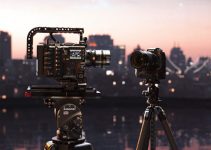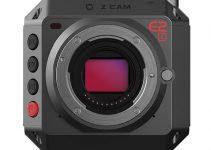Comparing cameras is in the DNA of every filmmaker. We enjoy comparing specs and quality of each and every camera released on the market, and that’s because we are dedicated to an impossible quest – the search for the perfect camera. That’s the reason that drives some comparisons (that may seem crazy to those that are not in the field) like the one we have here between the Pocket 4K and the ALEXA Mini.
The first camera costs less than $2,000 while the latter retails at an approximate $40,000 for a usable package. Crazy difference, right? Indeed, this comparison is a testament to the huge leaps in quality the lower end of the market has made in a few years. Since the release of the RED One MX, we saw the gap between high-end and lower-end pro cameras getting smaller.
That is great news for those indie filmmakers and productions that can’t afford to shell out such big chunks of the budget not even to the camera department, but to the camera alone. So, the guys from Film Jams are going to put the two workhorses one against the other and we’ll see who will come out ahead.
Starting with a 24p 4K test, we get to notice how similar the field of view of both the cameras is. They produce crisp and sharp footage with a great amount of detail. The image quality of the Pocket 4K is pretty amazing, especially when you consider that it’s more or less fifty times cheaper than the ALEXA Mini. The lowly Pocket holds well, but there are more than a few reasons behind the steep price of the ALEXA Mini.
The first one to catch the eye is the color rendition of the camera. No wonder it’s an industry standard in the filmmaking world. From the top of the brightest highlights, it gently rolls off to the shadows, crafting a beautiful image in between. The Pocket 4K just can’t keep up with that. The dynamic range is there alongside the sharpness and detail. But setting aside the slightly greenish hue it casts over the whole picture, there’s still an imponderable beauty that is missing in the frame.
Pushing up the frame rate to a 4K60p, we keep on with the wonderful images from both cameras. The greenish hue is still present on the Pocket 4K, but the image is again very sharp and full of detail.
The dynamic range on both rivals is well above usual standards: the clouds and the sky are present as well as the detail on the talent’s face. The conversion LUT gives a slight advantage to the ALEXA, as we can see a nicer saturation and contrast in the colored details of the blanket.
Cranking up a little more the frame rate, we jump at the 120fps mark where is the first clear defeat of the Pocket 4K. Up until now, the comparison showed a slight advantage of the ALEXA, but here we have a clear victory: while the ARRI camera uses the full sensor readout to capture the image, the BMPCC 4K has to crop down to a small window on the sensor, and the resolution tops at Full HD.
The image quality drops down as the crisp detail is lost, the image is much mushier, and the green is still clearly present. Apparently, the entry-level camera is not comfortable at this frame rate and if you plan to shoot a lot at high frame rates, then this surely is not the right camera for the job.
Rolling Shutter is almost not worth mentioning on either camera. It is present, but not in a notable way as both sensors have a quite quick readout time. If we move to darker environments instead, we can appreciate the solid performance of the Blackmagic’s sensor.
The tone and color rendition seems to be more consistent compared to the ALEXA Mini, but the amount of noise generated is actually much more. How can that be possible you may wonder? Well, the noise is visible, but it’s what we could call “cinematic”, it’s not the random mess of colors and pixels we usually see in cameras that are struggling in low-light.
Wrapping up and drawing our conclusions, we can say that the Pocket 4K has performed really, really well, especially when you take into account the actual price difference. If it’s true that most productions will rent instead of owning, you still can buy a Pocket 4K for a week’s rent of the ALEXA Mini. And you got to keep the camera too!
The superior performance of the ALEXA Mini and its color science is somehow balanced by Blackmagic with the free license for DaVinci Resolve they give away with the camera. If you have the time and the skills needed with the world’s most renowned color correction suite, you may be able to correct the footage and bring it up to the ARRI standards.
One last advice that we are going to take from this video – if you plan on going the BMPCC 4K way, fill your pockets with batteries as you’ll go through a lot of those and consider investing in a quality ND filter since the camera does not have an internal one.
[source: Film Jams]
Order Links:
Blackmagic Design Pocket Cinema Camera 4K (B&H, Amazon)
Disclaimer: As an Amazon Associate partner and participant in B&H and Adorama Affiliate programmes, we earn a small comission from each purchase made through the affiliate links listed above at no additional cost to you.



